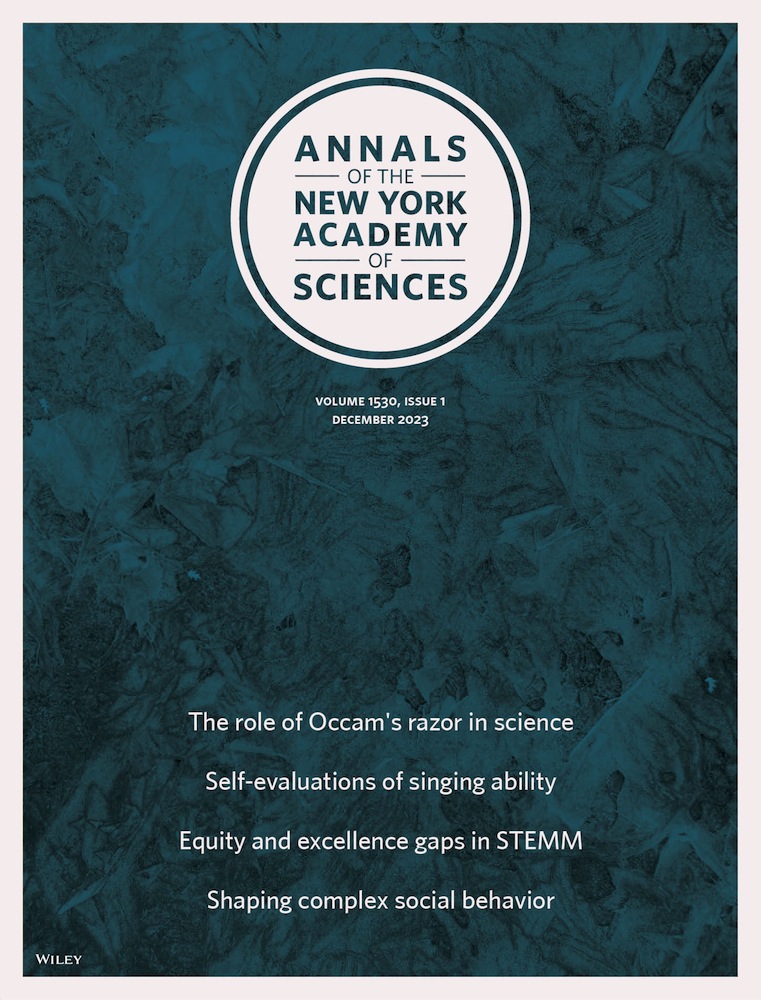Longitudinal Effects of Continuous Music Training on Cognitive Development: Evidence From the Adolescent Brain Cognitive Development (ABCD) Study
IF 4.8
3区 综合性期刊
Q1 MULTIDISCIPLINARY SCIENCES
引用次数: 0
Abstract
Music training has been associated with the development of cognitive and language skills, yet large‐scale longitudinal studies exploring these relationships are still limited. Drawing on data from the Adolescent Brain Cognitive Development (ABCD) Study, we examined the long‐term associations between continuous music engagement and cognitive abilities, including the moderating role of neighborhood socioeconomic deprivation. We also applied classification models to distinguish musicians from non‐musicians on the basis of their performance on cognitive tasks. Our findings revealed that children who are consistently engaged in music training for 2 years scored higher on multiple cognitive and language‐based tasks, with greater gains in picture vocabulary over time compared to non‐musicians. Socioeconomic factors moderated these effects, with non‐musicians from high‐deprivation neighborhoods demonstrating smaller improvements in picture vocabulary than their low‐deprivation counterparts, whereas musicians across socioeconomic backgrounds exhibited similar improvements over time. Additionally, classification models identified a distinct profile in musicians, with cognitive performance serving as a key predictor of music engagement, distinguishing musicians from non‐musicians. These findings reinforce the role of music training in supporting cognitive and language development and highlight its potential as a cognitive enrichment tool, particularly for children from disadvantaged backgrounds.持续音乐训练对认知发展的纵向影响:来自青少年大脑认知发展研究的证据
音乐训练与认知和语言技能的发展有关,但探索这些关系的大规模纵向研究仍然有限。根据青少年大脑认知发展(ABCD)研究的数据,我们研究了持续音乐参与与认知能力之间的长期联系,包括社区社会经济剥夺的调节作用。我们还应用分类模型根据音乐家和非音乐家在认知任务中的表现来区分他们。我们的研究结果显示,持续进行两年音乐训练的儿童在多项认知和语言任务中得分更高,与非音乐家相比,随着时间的推移,他们在图片词汇方面的收获更大。社会经济因素缓和了这些影响,来自高贫困社区的非音乐家在图片词汇方面的进步比来自低贫困社区的非音乐家的进步要小,而不同社会经济背景的音乐家随着时间的推移也表现出类似的进步。此外,分类模型确定了音乐家的独特特征,认知表现是音乐参与的关键预测指标,将音乐家与非音乐家区分开来。这些发现强调了音乐训练在支持认知和语言发展方面的作用,并强调了它作为认知丰富工具的潜力,特别是对于来自弱势背景的儿童。
本文章由计算机程序翻译,如有差异,请以英文原文为准。
求助全文
约1分钟内获得全文
求助全文
来源期刊

Annals of the New York Academy of Sciences
综合性期刊-综合性期刊
CiteScore
11.00
自引率
1.90%
发文量
193
审稿时长
2-4 weeks
期刊介绍:
Published on behalf of the New York Academy of Sciences, Annals of the New York Academy of Sciences provides multidisciplinary perspectives on research of current scientific interest with far-reaching implications for the wider scientific community and society at large. Each special issue assembles the best thinking of key contributors to a field of investigation at a time when emerging developments offer the promise of new insight. Individually themed, Annals special issues stimulate new ways to think about science by providing a neutral forum for discourse—within and across many institutions and fields.
 求助内容:
求助内容: 应助结果提醒方式:
应助结果提醒方式:


